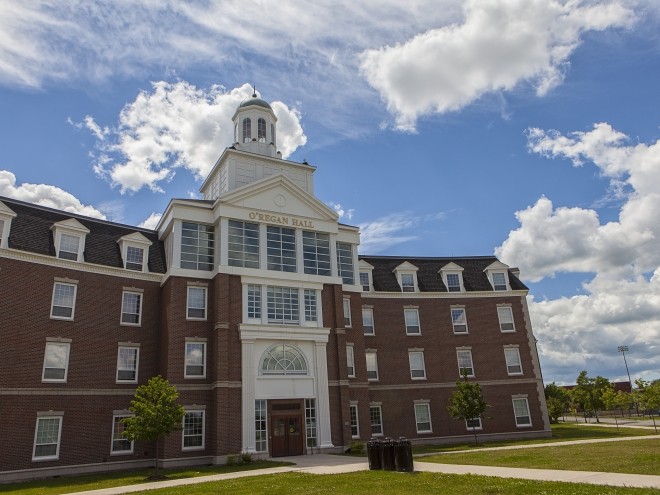Program Overview:
About Music
StFX Music is a pioneer in jazz education in Canada. We offered the country’s first university degree in Jazz Studies in 1983.
At StFX, you’ll receive individual instruction from some of Canada’s leading music educators in studio, classroom and rehearsal environments, honing your performance and compositional skills.
Our strengths are in our teaching and course content. We provide direct face-to-face private studio lessons with faculty, and our courses teach you how to use the best resource available: you. As a Music major, you’ll have courses in music theory, composition, arranging, private studio lessons, jazz history, and ensembles.
In addition, we want you to see and hear how it’s done. The Visiting Artist Program brings internationally known performers to campus for clinics, concerts and workshops, giving students exposure to learn from the world’s best jazz musicians.
Why study Music at StFX?
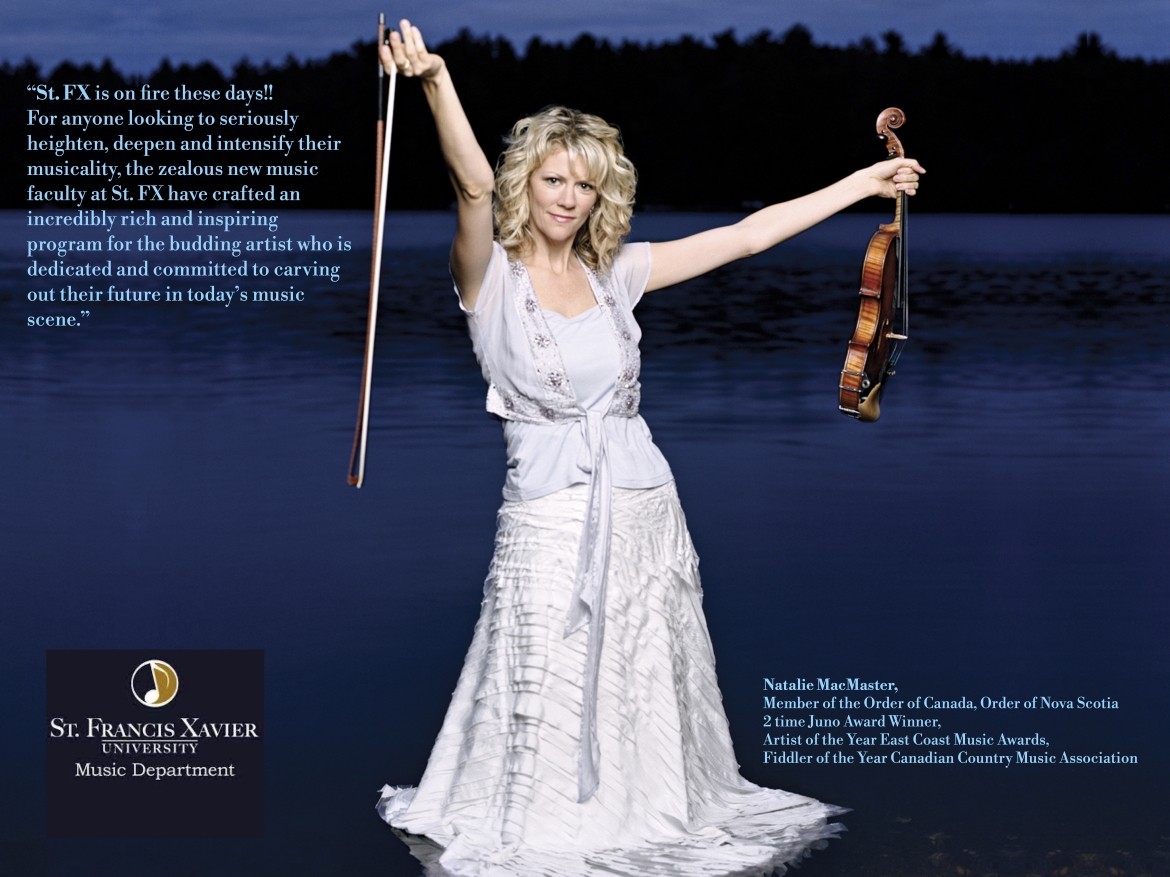
"St.FX is on fire these days!! For anyone looking to seriously heighten, deepen and intensify their musicality, the zealous new music faculty at St.FX have crafted an incredibly rich and inspiring program for the budding artist who is dedicated and committed to carving out their future in today's music scene."
Natalie MacMaster,
Member of the Order of Canada, Order of Nova Scotia,
2 time Juno Award Winner,
Artist of the Year East Coast Music Awards,
Fiddler of the Year Canadian Country Music Association
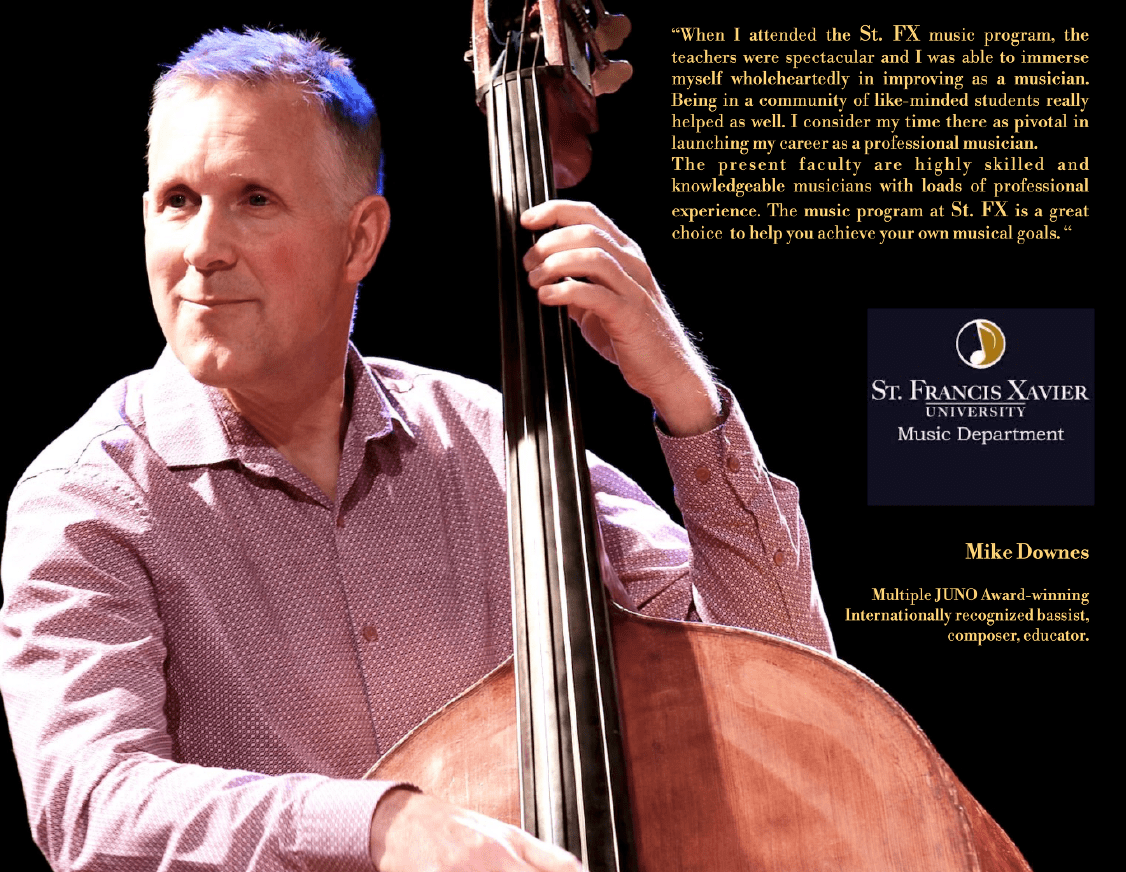
"When I attended the StFX Music program, the teachers were spectacular and I was able to immerse myself wholeheartedly in improving as a musician. Being in a community of like-minded students really helped as well. I consider my time there as pivotal in launching my career as a professional musician. The present faculty are highly skilled and knowledgeable musicians with loads of professional experience. The music program at StFX is a great choice to help you achieve your own musical goals."
Mike Downes,
Multiple JUNO Award-winning,
Internationally recognized bassist,
Composer, Educator
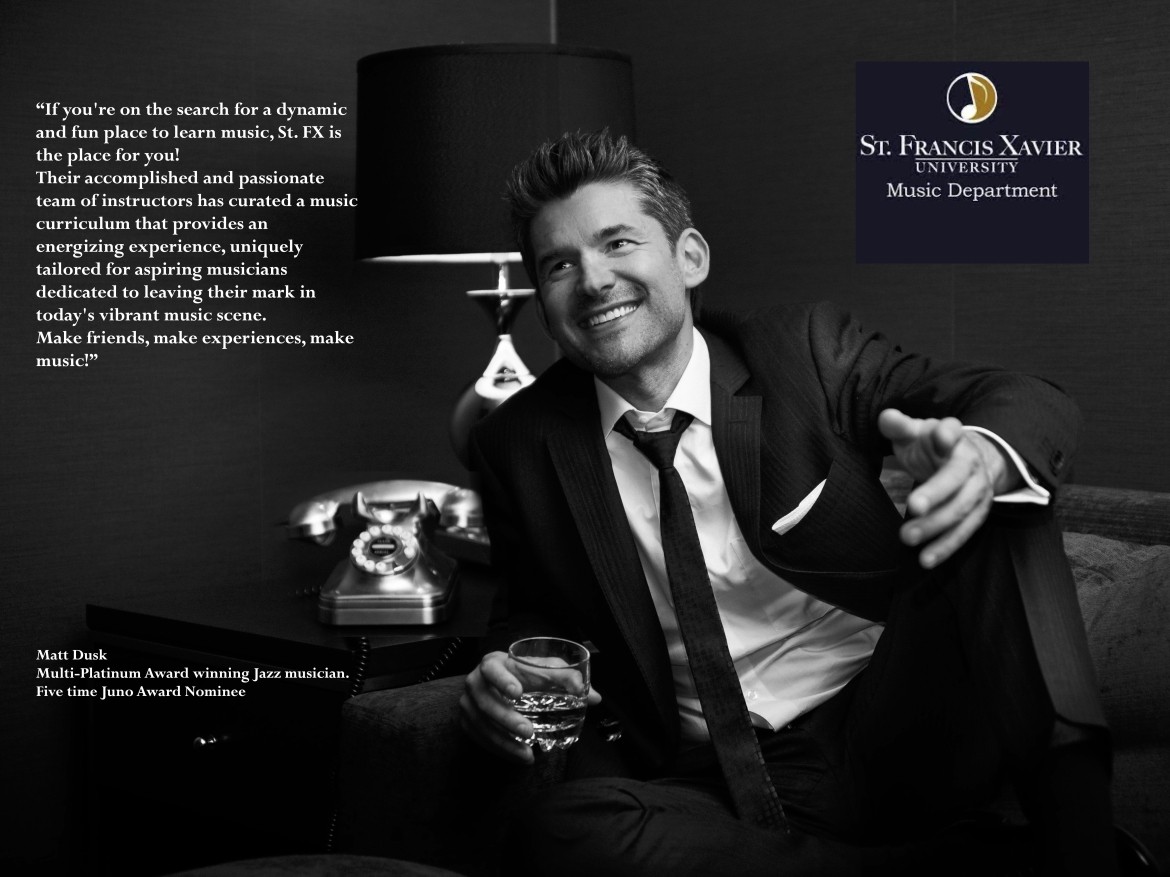
"If you're on the search for a dynamic and fun place to learn music, St.FX is the place for you! Their accomplished and passionate team of instructors has curated a music curriculum that provides an energizing experience, uniquely tailored for aspiring musicians dedicated to leaving their mark in today's vibrant music scene.
Make friends, make experiences, make music!"
Matt Dusk,
Multi-Platinum Award winning Jazz musician,
Five time Juno Award Nominee,
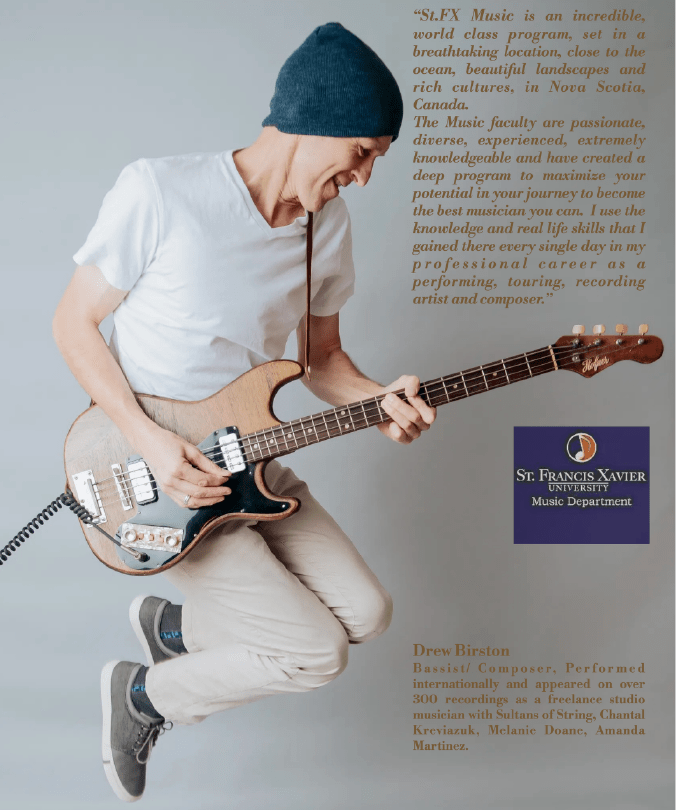
"StFX Music is an incredible, world class program, set in a breathtaking location, close to the ocean, beautiful landscapes and rich cultures, in Nova Scotia, Canada. The Music faculty are passionate, diverse, experienced, extremely knowledgeable and have created a deep program to maximize your potential in your journey to become the best musician you can. I use the knowledge and real life skills that I gained there every single day in my professional career as a performing, touring, recording artist and composer."
Drew Birston,
Bassist/Composer,
Performed internationally and appeared on over 300 recordings as a freelance studio musician with Sultans of String, Chantal Kreviazuk, Melanie Doane, Amanda Martinez.
Our jazz curriculum is the central focus of our music program. You’ll learn competence on your instrument or voice, study the jazz and popular standard repertoire, work with and observe highly accomplished faculty and guests, and gain insights into the creative skills needed to make your own music. Our program prepares you to make any type of music in the fields of jazz, blues, pop, rock, country, and R&B.
As a Music student, you’ll benefit from:
- Personalized instruction and mentorship from our accomplished faculty and visiting artists.
- A supportive student environment with frequent collaboration and a strong sense of community.
- Performance opportunities at ceremonies, parties, athletic events, jam sessions and local venues.
At StFX, we have full-time faculty members teaching in every studio, rather than adjuncts. Not only does this ensure quality instruction, but it also means that your lessons are integrated with the rest of your studies – in music theory, arranging, composition, styles and analysis, and jazz history. Your studio prof knows what you are studying, and how these subjects apply to you as a player or singer.
First year at a glance
As a first-year music student, you’ll focus on the basic structure and theory of music, receive individual lessons, and begin study of the history of and ideas behind jazz and popular music.
For all students, the department additionally offers several innovative, quirky and unusual courses from The Beatles to Music for Film, TV, and video games.
Future opportunities
As a music graduate, composing, performing, and teaching are three of most common ways you can develop your music career. The type of work experience that will be useful depends on the career you'd like after your degree. Possible other opportunities include: music producer, music therapist, music educator (public school, private music teaching) sound designer, and sound engineer.
Other jobs where your degree would be useful include: acoustic consultant, arts administrator, broadcasting, community arts worker, events manager, talent agent, stage manager, music retail, music manufacturing industry, and musical instrument repair.
- Composer
- Education / Teacher
- Music Therapist
- Musician
- Sound Engineer

